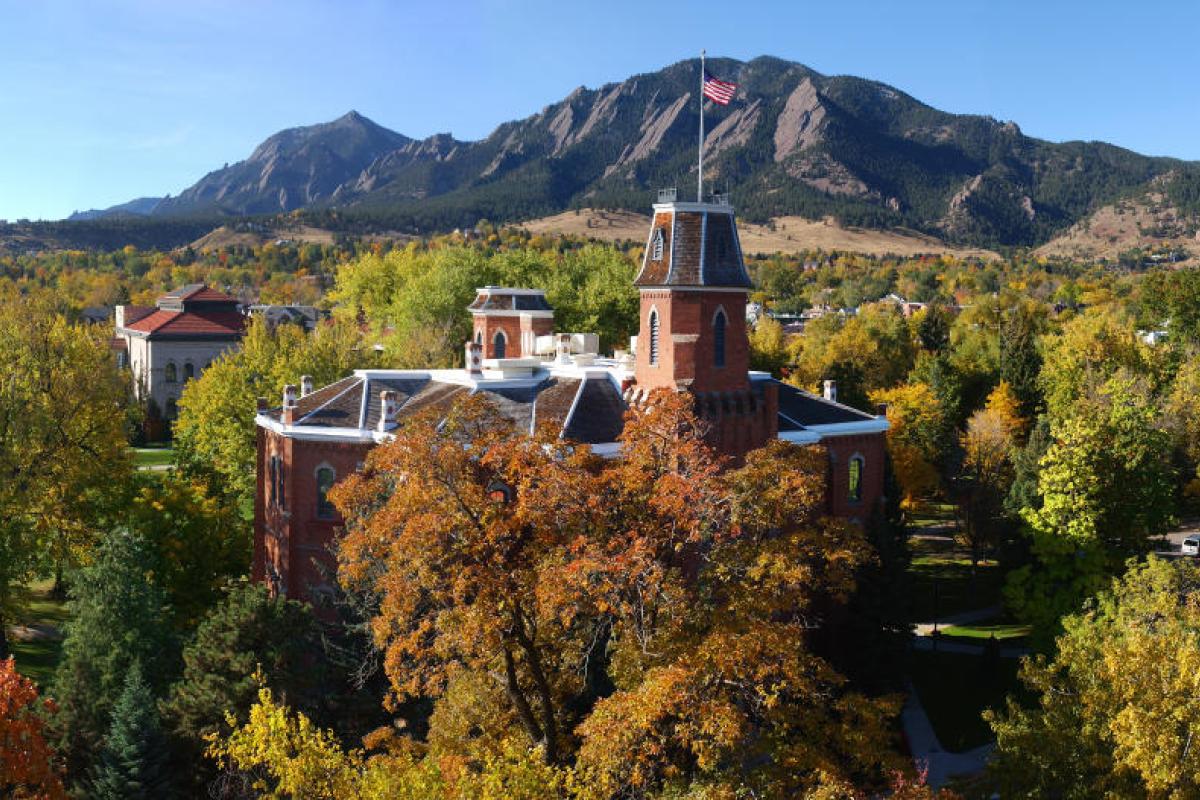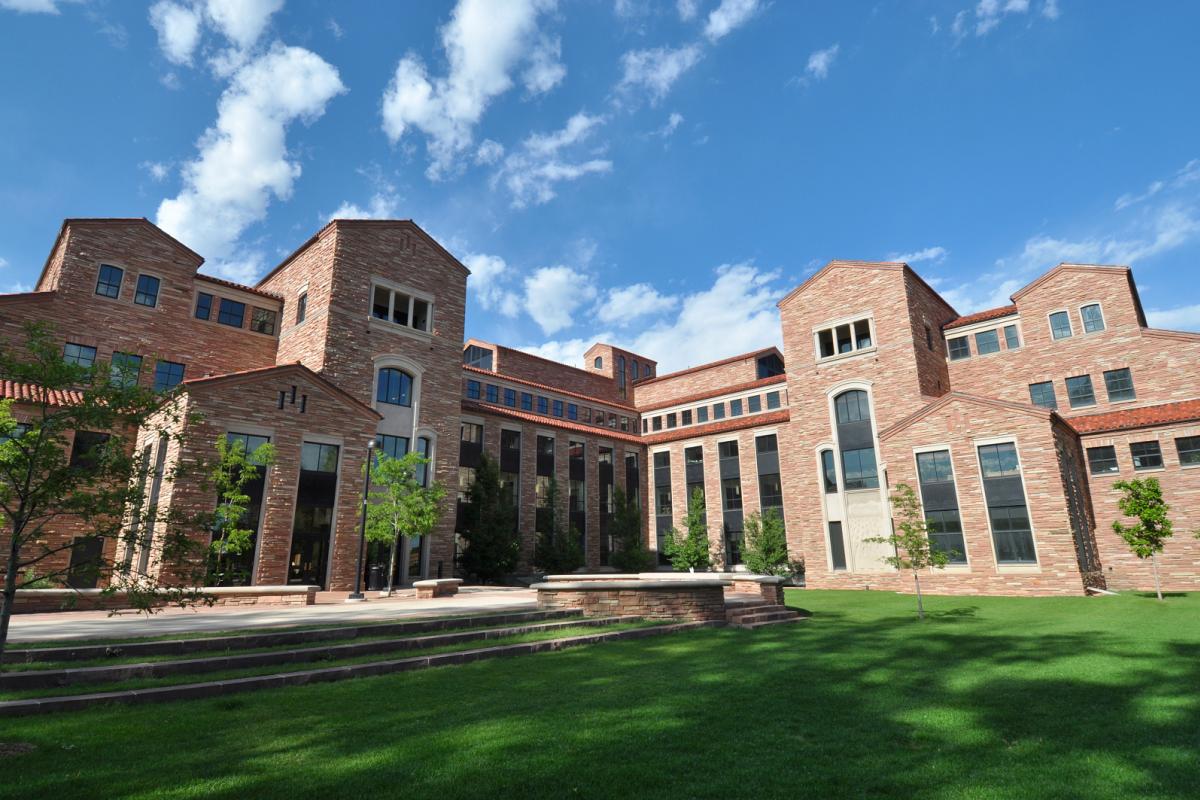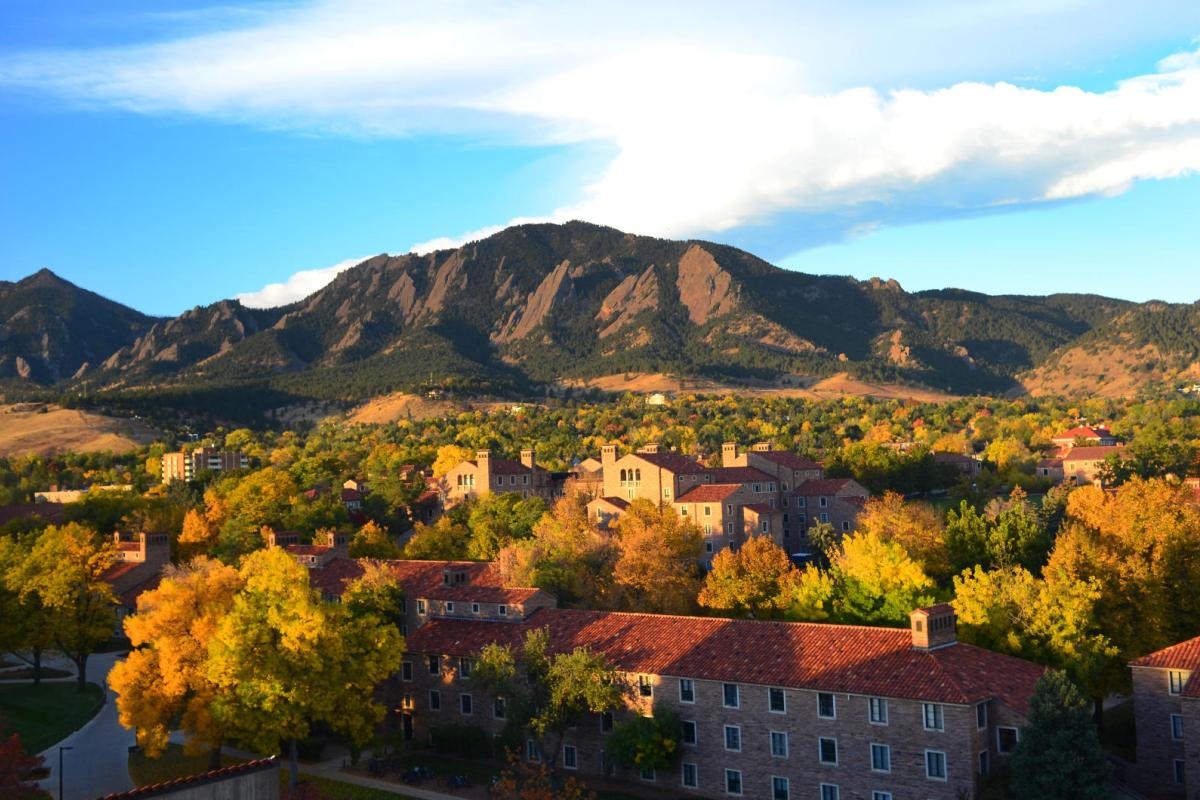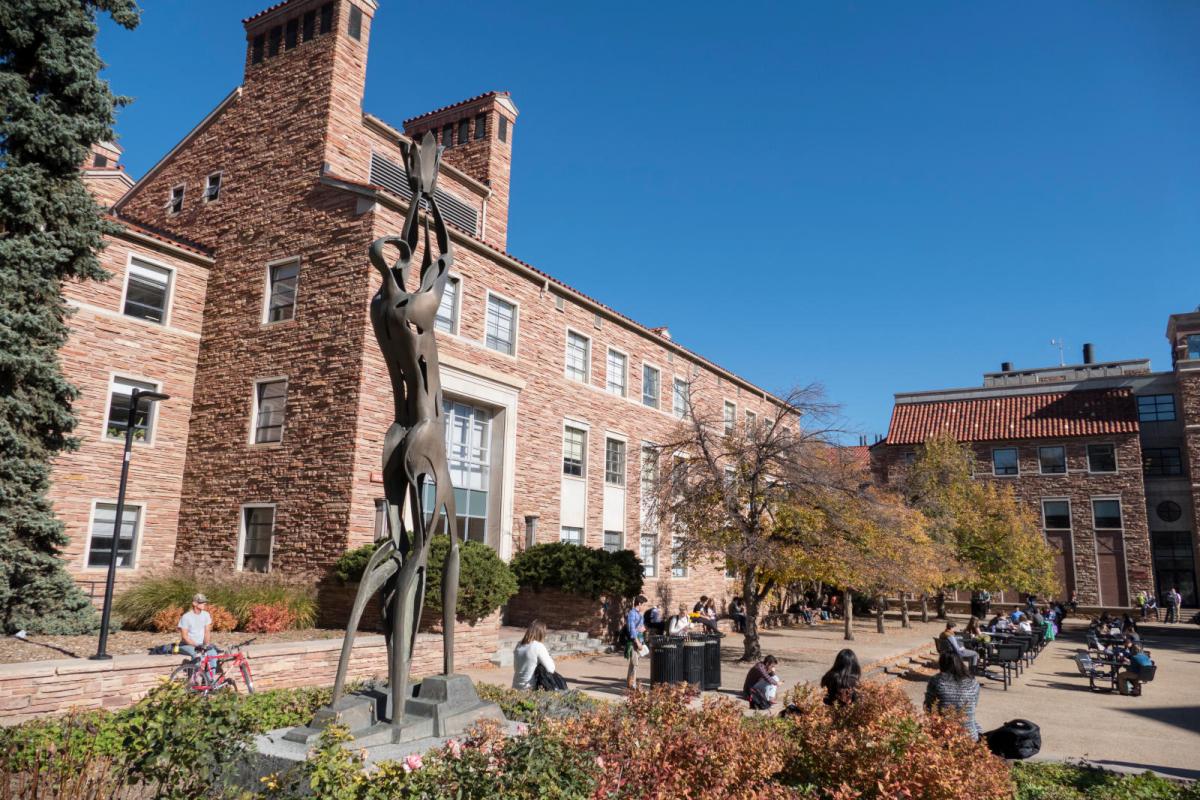Undocumented Student Resources
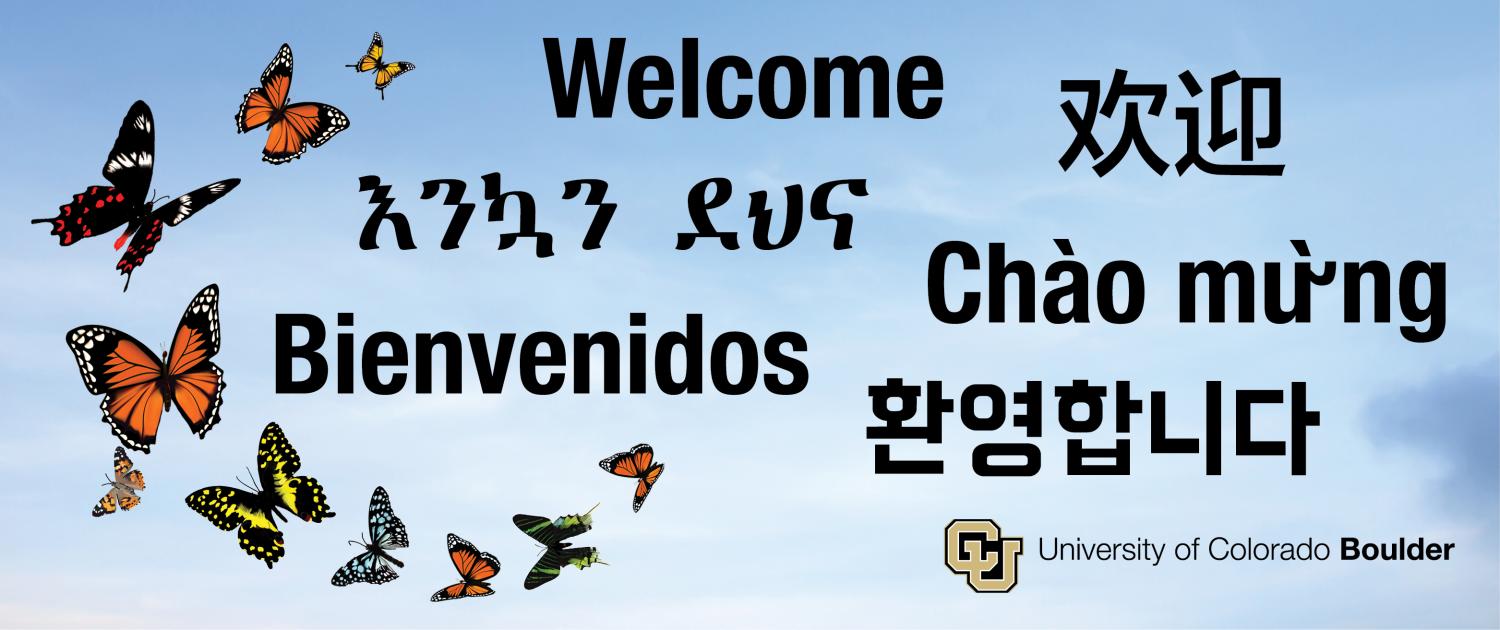
Welcome! Bienvenidos, 欢迎, Chào mừng, እንኳን ደህና መጣህ, 환영합니다
CU Boulder welcomes all undergraduate, graduate students and postdoc scholars who are pursuing their higher education goals on campus, regardless of immigration status.
While we know that immigration status does not solely define a person, their identity or their ambitions, we also recognize that this status can cause another layer of questions, concerns and need for clarification. The Center for Cultural Connections & Community is available to help you navigate those questions and find your space and opportunities in the CU Boulder community. Through individualized service as well as key events, we offer points of advocacy so that students can achieve their educational and personal goals.
Throughout the year, we offer a variety of ways to connect, including CASFA (Colorado Application for State Financial Aid) info sessions, community building opportunities, events to connect with alumni and other resources on campus.
We encourage you to explore the resources below and please reach out with any questions!
- Email a question by completing the form on the right-hand side of this page.
- Visit the Center for Cultural Connections & Community in the Center for Community (C4C) room N320.
- Call 303-492-0272.
You can find more information on the resources here, as well as much more, in our CU Boulder UndocuGuide.
Terminology
Language matters and it evolves over time. We want our campus community to know how we have approached these conversations, as well as how we are talking to faculty and staff about ways to support our student community!
Likewise, we also affirm and emphasize that individuals choose what language they prefer to use in referencing their own identities. We encourage our community to learn from each other and use terminology respectfully.
Through the ASSET bill passed by the Colorado State Legislature in 2013, undocumented students are eligible for in-state tuition if they meet specific criteria. The Colorado ASSET Law provides students the opportunity to pay in-state tuition at public institutions if they fit the following Colorado-specific criteria (updated in May 2022):
- Attend a Colorado high school for at least one year preceding the date of graduation.
- Graduate from a Colorado high school or earn a Colorado GED.
- Reside in Colorado for at least 12 consecutive months prior to enrolling at the institution.
- Apply for the College Opportunity Fund (COF) and submit the supplemental COF affidavit indicating they do not have lawful immigration status, but they have applied for lawful presence or will apply as soon as they are eligible (separate application required).
More information on the Colorado ASSET Law
Financial aid information for ASSET students.
Deferred Action for Childhood Arrivals (DACA) is an American immigration policy created by then-President Obama in June of 2012 that allows certain undocumented immigrants who entered the country before their 16th birthday and before June 2007 to receive a renewable two-year protection from deportation. It also allows recipients to apply for work authorization during that two-year period. This was an executive action that only deferred removal and does not confer any change in legal status to the immigrants who meet the eligibility requirements. The Trump administration attempted to rescind the DACA program in 2017 but were unsuccessful; there have been continuing legal challenges to the program that have led to continuing uncertainty. While the Biden Administration quickly affirmed its commitment to DACA recipients, the uncertain future of the DACA program, as well as any Congressional action that would lead to a permanent status process remains an ongoing challenge.
See theLegal Assistance and DACA Renewal Support page for updates impacting DACA, including questions on adjustment of status or advanced parole in relation to educational opportunities
The DREAM Act (short for Development, Relief and Education for Alien Minors Act) was a bipartisan bill originally introduced to Congress in 2001. The DREAM Act would have granted legal status to undocumented immigrants who were brought to the United States as children and went to school in the U.S. The DREAM Act has been reintroduced in Congress numerous times, and has never been passed. The current iteration of the bill, called the Dream & Promise Act, was passed by the U.S. House of Representatives in March of 2021 but has yet to come up for a vote in the Senate.
The term “DREAMer” is now used to describe young undocumented immigrants who were brought to the United States as children, who live and go to school in the U.S., and who in many cases identify as American. While this is still one of the most used terms, conversations within the community have also emphasized the discomfort of claiming a DREAMer narrative that blames or criminalizes parents and families, as well as expects an unrealistic level of perfection from individuals.
Read more about the Dream and Promise Act of 2021.
This term refers to a person that does not have the legal papers required to prove residence, citizenship and/or work authorization in the United States. There are several ways that people can become undocumented including: entering the U.S. without authorization, originally entering the U.S. legally, but immigration documentation is expired, and submitting immigration documentation to continue to remain in the U.S., but it is denied. Often, students who are undocumented have lived in the U.S. for most of their lives and have attended schools in the U.S. for most or all of their lives. “Undocumented” is the preferred term to use, instead of “illegal,” which has a negative, derogatory and insulting connotation.
A person who holds citizenship in the United States through birth on U.S. soil, birth to U.S. citizen parents abroad, naturalization, or the naturalization of the parent while the Legal Permanent Resident child is still young (exact age has changed over time).
Legal Permanent Residents (aka LPRs, “Resident Aliens,” Green Card Holders) are those immigrants who are lawfully present in the U.S., can work and travel freely, and can remain in the United States indefinitely. After a certain period of lawful permanent residency, an immigrant can apply to naturalize, or to become a citizen of the U.S. Once an immigrant naturalizes to become a U.S. citizen, they are also then able to vote in U.S. elections.
LPR status is granted in two main ways: 1) through petitions based on U.S. citizen or LPR family members (which take a few months for immediate relatives like a spouse, and up to 20 years for more distant relatives like a sibling), and 2) through the sponsorship of an employer who certifies that this person performs a role no U.S. citizen has been found to perform (usually high skilled). Note, therefore, that low-skilled workers will likely find that their only avenue to acquire LPR status is through a family member.
LPR status is not automatically conferred; applicants, even those who are married to a U.S. citizen, must pass a health and background check. Many crimes, including some related to undocumented border-crossing, can make the person ineligible for LPR status no matter how compelling their case to acquire it, and even if they are married to a U.S. citizen. Furthermore, most people who have lived in the United States undocumented must return to their home countries to apply for LPR status, and once there may be subject to 5-10 year “bars” to reentry; again, this applies even if they have a U.S. citizen spouse.
LPR status can be lost if the immigrant leaves the United States for an extended period of time and is deemed to have abandoned their residence. It can also be lost if a person commits a crime that makes them deportable.
“Mixed Status” is a term often used to describe families that include members who have different citizenship and/or immigration statuses. One example of a mixed-status family is one in which the parents are undocumented and one or more of the children are U.S.-born citizens. For many students, their status may vary from their parents, younger or older siblings, or even from their wider extended family. Often, even students who are themselves U.S. citizens may still identify within the wider undocumented community due to status realities of their family and loved ones.
UndocuAlly Events
Resources
- Applying to CU Boulder
- What steps to take as an undocumented student
- Contact Israel Sanchez in the Admissions Office with any questions
- State and Institutional Aid and how to apply
- CU Boulder and outside scholarship opportunities
- Emergency Fund resources
- Student support at the Colorado Law Immigration Clinic
- Relief Fund resources
- Updates on DACA
- Employment Authorization Documents (EAD)
- Faculty & Staff Assistance Program
- “Know Your Rights” information
- On-campus support for undocumented students
- Key offices across campus
- Ways to get involved
UndocuAlly Training
The Center for Cultural Connections & Community offers training for CU Boulder faculty, staff and graduate students with a teaching/administrative role who want to learn more about how to support DACA and ASSET students. If you have any questions, please contact the Center for more information. UndocuAlly trainings are a two-hour commitment. Registrants must attend the full session. Registration will close at noon the day before the training. Registrants will receive an email the day before the training confirming whether the training will run and providing the Zoom link for the training.
- Sept. 22 | 10 a.m.-12 p.m. | Virtual
- Oct. 23 | 1 p.m.-3 p.m. | Virtual
- Nov. 10 | 10 a.m.-12 p.m. | Virtual



